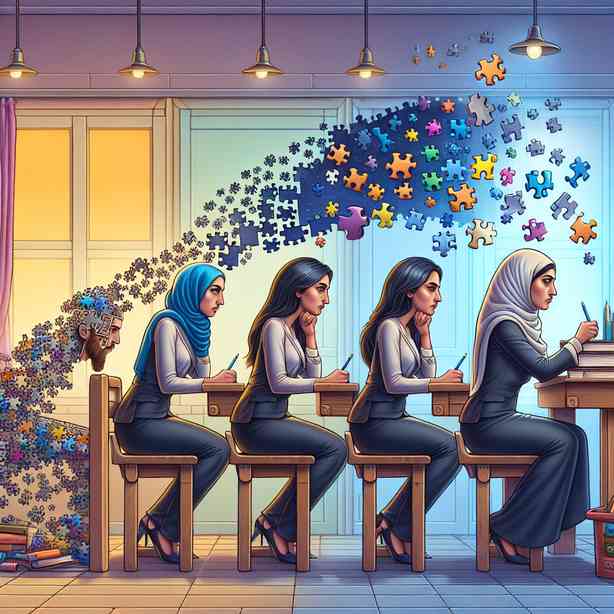
The realization that “it’s all mental” can be a profound awakening that triggers significant changes in how we perceive and navigate our lives. This concept revolves around the understanding that much of what we experience—our emotions, our reactions, and even the challenges we face—are largely influenced by our mindset. It emphasizes the power of thoughts and beliefs in shaping reality, leading us to recognize that how we think about our circumstances can alter our experiences.
To begin, it is essential to delve into the fundamental idea that our thoughts have a tangible impact on our emotional state and behavior. The mind has the remarkable ability to influence our physical reality. When we find ourselves facing challenges, our thoughts can either empower us or lead us down a path of despair. For instance, consider a scenario where one approaches a difficult task with a positive mindset, viewing challenges as opportunities for growth. Conversely, someone who perceives the same situation as an insurmountable obstacle may feel overwhelmed and unable to proceed. The difference lies not in the situation itself but in the mental framing of that situation.
Additionally, the concept of cognitive distortion plays a significant role in this realization. Cognitive distortions are erroneous thought patterns that can cloud our judgment and alter our perception of reality. Common distortions include catastrophizing, where one anticipates the worst-case scenario, or black-and-white thinking, which leaves little room for nuance and complexity. By recognizing and challenging these distortions, we can begin to shift our mindset towards a more balanced and constructive approach.
To further understand the impact of mental framing, it can be helpful to explore the power of positive thinking. Research has shown that maintaining a positive outlook can enhance problem-solving abilities, improve resilience, and foster better interpersonal relationships. When individuals approach life with optimism, they are more likely to take proactive steps to address difficulties, creating a self-reinforcing cycle of success. This is not to say that simply thinking positively will eliminate challenges; rather, it equips individuals with the mental fortitude to face such challenges head-on.
Another perspective worth considering is the role of mindfulness and present-moment awareness in strengthening our mental state. Mindfulness encourages individuals to observe their thoughts and feelings without judgment, fostering a deeper understanding of the mind’s workings. By practicing mindfulness, we can become more aware of negative thought patterns and develop a greater capacity to respond rather than react to stressors. This awareness can transform our approach to daily life, allowing us to cultivate a healthier relationship with our thoughts and emotions.
Moreover, it is crucial to acknowledge the impact of external influences on our mental landscape. Social media, societal expectations, and interpersonal relationships can shape our thoughts and beliefs significantly. In an age where comparison has become commonplace, it is easy to fall into the trap of self-doubt and negative self-talk. Recognizing these external pressures and actively curating our environments can mitigate their influence, allowing us to cultivate a more positive and resilient mindset.
Another important aspect of this realization is the connection between mental health and physical well-being. Numerous studies have highlighted the interplay between our mental and physical states, showcasing how stress and anxiety can manifest as physical symptoms. By nurturing our mental health through practices like exercise, healthy eating, and adequate sleep, we not only bolster our emotional resilience but also enhance our overall physical health. This holistic approach underscores the importance of viewing our lives through the lens of mental well-being.
As we journey through life, we all encounter moments of doubt, fear, and uncertainty. It is during such times that the realization of the mental nature of our experiences becomes particularly significant. By embracing the notion that our thoughts shape our realities, we empower ourselves to reframe our narratives and take ownership of our responses. This empowerment allows us to break free from the chains of negativity and cultivate a mindset that promotes growth and resilience.
As we reflect on the journey of understanding that “it’s all mental,” it is essential to remember that this is not a destination but rather an ongoing process. Continuous self-reflection, the incorporation of positive practices, and the pursuit of mental growth can foster a more profound connection to oneself and the world around us. With each step taken towards cultivating a positive mindset, we further unlock the potential of our minds to shape our realities.
In summary, the realization that “it’s all mental” serves as a powerful reminder of the influence our thoughts have on our experiences. By actively engaging with our mental processes, challenging distortions, promoting positive thinking, practicing mindfulness, and recognizing external influences, we can take charge of our mental well-being. As we cultivate a healthier mindset, we pave the way for personal growth, resilience, and a more fulfilling life. Embracing this journey empowers us to navigate life’s challenges with grace and optimism, ultimately leading to a richer, more meaningful existence.


